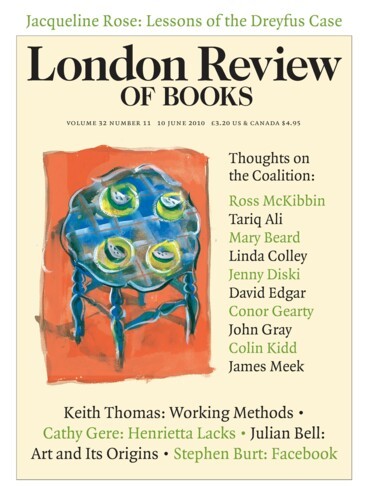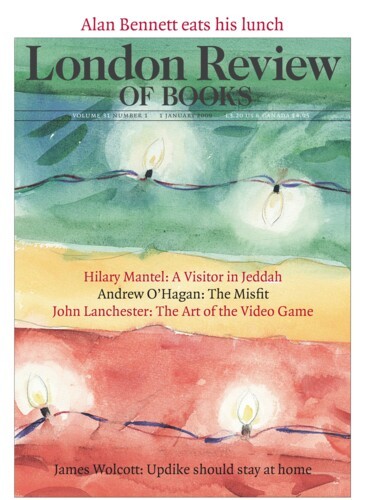Two Poems
Mark Ford, 10 June 2010
Is the night Chilly and dark? The night is chilly But not dark. An all but full April moon Slides above barely visible clouds, and is greeted By a burst of hooting from an urban Tawny owl. On empty Brownfield sites they nest, and rear their young, and feed On vermin. Has Any Probing, saucer-eyed astronomer, even a modern Or French one, ever Grown genuinely accustomed ‘aux...





